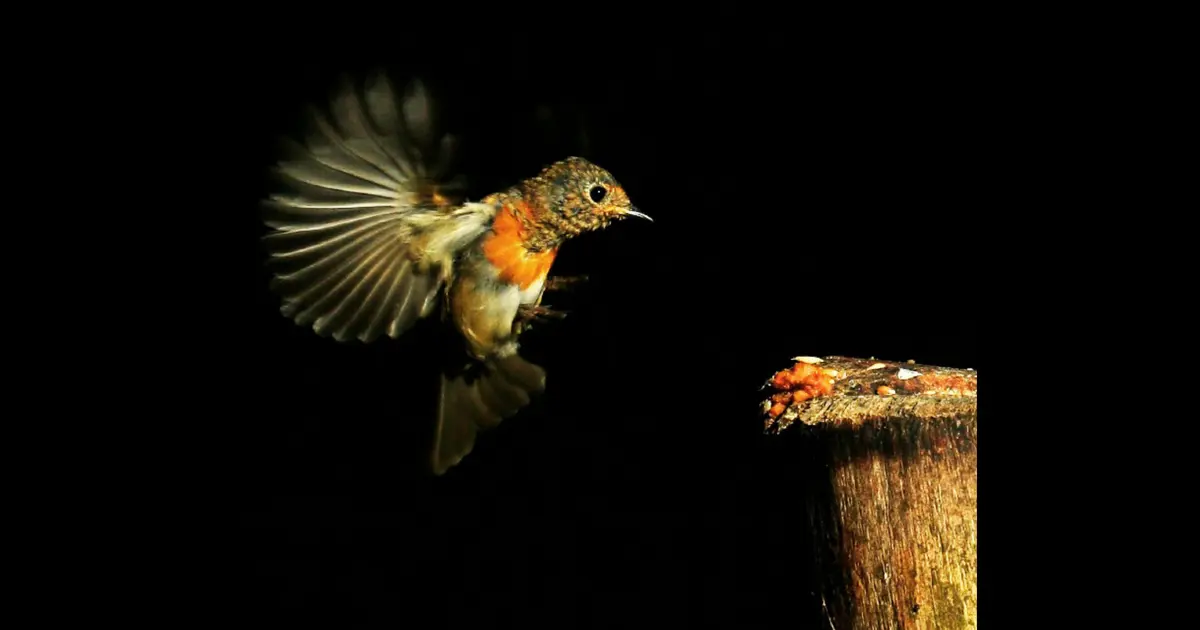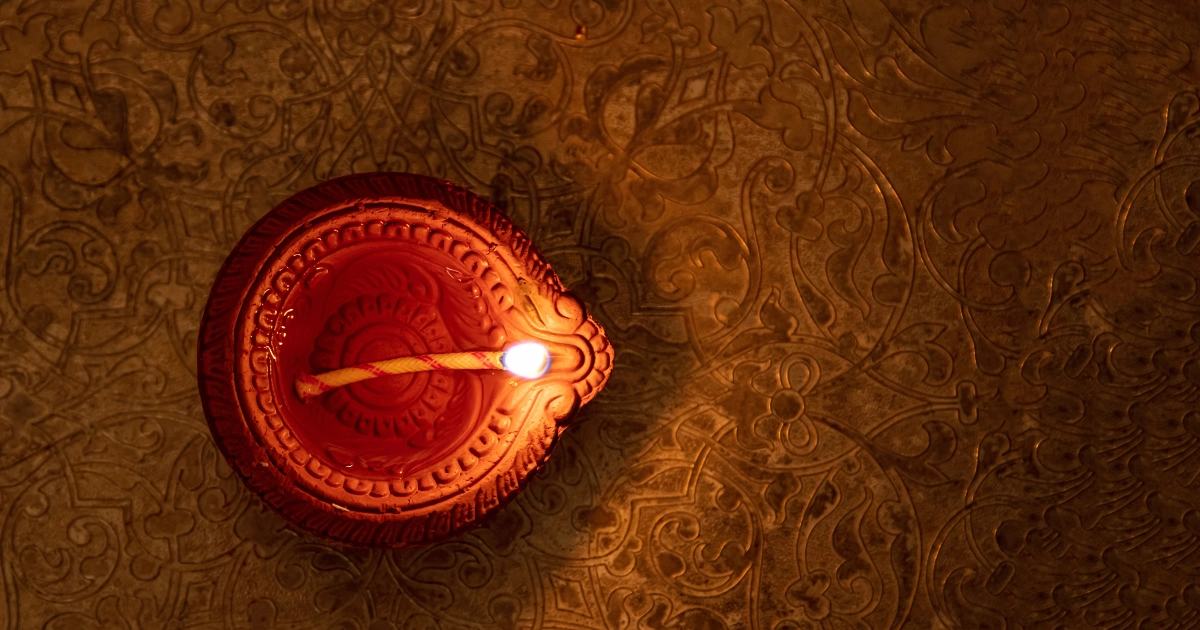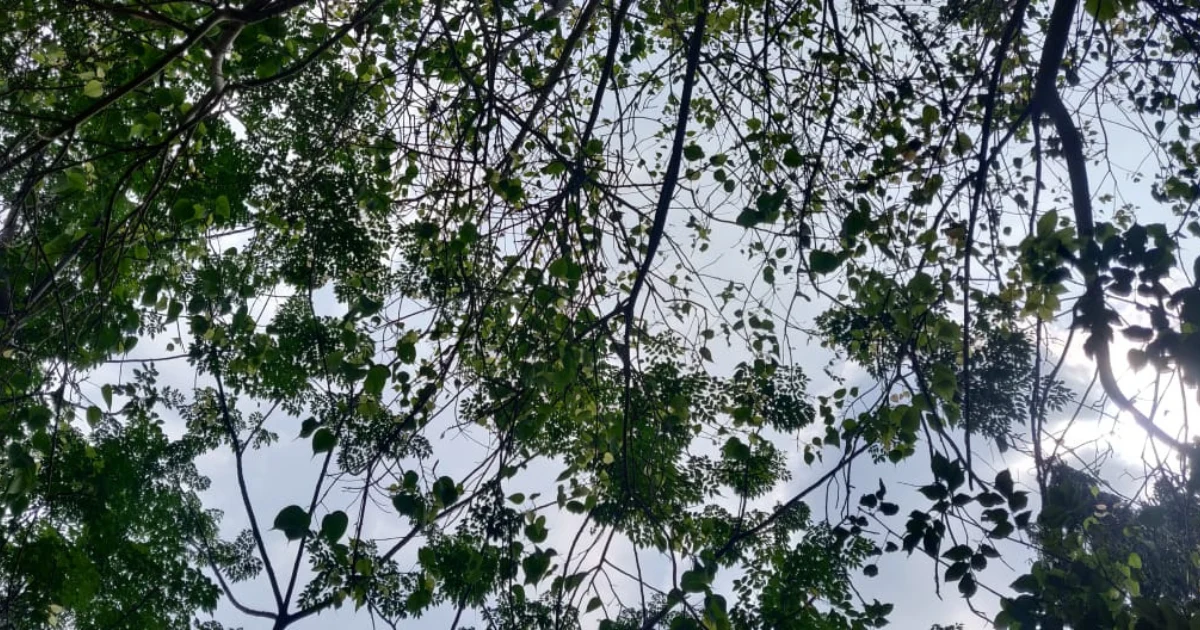I am reminded of my teacher, who repeatedly tells us as we keep learning texts: It is okay if we don’t understand it the very first day, it is okay if we don’t remember it after we learn. It is the experience in the contexts that occur one day in the future, and how we relate that experience with the learning of the text in the past, which will open the gates of awareness.
One day when we come across a certain context it will dawn upon us as to how that context is connected with the learning that we have done in the text.
One such thing that happened to me: Over the past 20 years, I have been chanting Camaka Praśna (Yajur Veda). This week, when I was teaching a student this very Camaka Praśna, it just dawned on me to check the meaning. As I was reading the 1st anuvāka, I came across
Dakṣāśca me̱
When I check the meaning of the word “Dakṣa”, I see:
efficient functioning of all sense organs
I went into deep silence as the meaning of the word Dakṣa dawned on me. It took me back to a story from Srimad Bhāgavata Purāṇā which I have listened to quite a few times: DakṣaYajñam. Slowly the story started to unfold in my mind.
As the Story Unfolds
Once, Dakṣaprajāpati (Dakṣa), who is the father-in-law of Bhagavān Śiva, enters a huge yāgaśāla where a grand yajña is being performed. Everyone present there gets up and pays respect to Dakṣa, as he is the Prajāpati, the ruler of that place, except for Śiva.
True to HIS name, Śiva is present there, sitting still in his penance, all to himself, not realizing what is happening around. He is not distracted by what is happening around HIM. As luck would have it, Dakṣa notices one odd person is not getting up and realizes that it is his son-in-law Śiva. He feels insulted and gets very angry. Dakṣa decides to get back at Śiva and teach him a lesson for the callous and insulting behavior.
To get back at him, he organizes a huge Yajṅa and creates a Satram where the yajṅa is to happen. He invites learned sages and the devatās, including Indra, Agni, Varuṇa, Vāyu and others. He does not invite Śiva & Śakti on purpose, as he wants to insult them. Śakti is his daughter and in this avatāra she is called Dākṣāyaṇī.
Śiva & Śakti at their abode are unaware of this Yajña. Dākṣāyaṇī, from her abode, observes innumerable number of chariots carrying devatās & ṛṣis passing by. She enquires with them as to where they are heading.
They reply saying, “Your father is performing a very huge yajña, don’t you know about it? Are you people not invited?”.
Dākṣāyaṇī immediately understands and replies, “Yes, yes of course my father has invited us, we are getting ready to get there as well, you all carry on and we will follow." Thus, she covers up the fact that they have not been invited.
Dākṣāyaṇī then approaches Śiva and tries out a tactic to convey this message to Śiva. She starts by saying “Oh! Divine One, YOUR father-in-law is conducting a yajña.
Śiva in reply asks, “So what?”
Dākṣāyaṇī makes a valiant effort by saying that, Śiva and herself need go the yajña; and that even if they are not invited, it is afterall HER father’s place. She tries giving explanations and justifications. Śiva insists on the fact that they have not been invited and it is incorrect to go to any place without being invited. Śiva reminds HER of the śāstra that one should not go to a place where one is not invited.
But Dākṣāyaṇī does not listen to Śiva and tries to convince him. Śiva remains unmoved. She gets adamant and insists on going. Śiva relents and finally says, “You can go.”
Dākṣāyaṇī leaves without Śiva. As she leaves, he calls her -
Dākṣāyaṇī!
in order to indicate that she still has the tendencies of Dakṣa. When she turns to look at him, he says –
Go.
We need to note this point here: He does not say go and return.
When Dākṣāyaṇī goes to the yajña, she gets insulted by Dakṣa. Śiva is also insulted, even though he is not present. Dākṣāyaṇī gets very angry. She jumps into the yajña fire and does śarīra tyāgam (she sacrifices HER physical body). Later, she is reincarnated as another avatāra and after a lot of penance, attains Śiva again.
Meanwhile the Śiva-gaṇas who accompany Dākṣāyaṇī, return to Śiva and inform HIM that Dākṣāyaṇī has given up her life, jumping into the fire. Śiva is enraged. Out of his eyes comes Rudra, an aṃśa of Śiva. Rudra goes to the yajña satram, destroys the yajña, and beheads Dakṣa. The ṛṣis and everyone present plead to Śiva with stotras, to restore Dakṣa back to life as the yajña is incomplete. The story goes that Śiva places a goat’s head and restores Dakśa’s life.The yajña is completed.
Evocations1
Dakṣa, meaning “efficient functioning of sense organs”. When I give in to the invites of my sense organs, then I am moving away from a state of balanced triguṇas (sattva, rajas & tamas). My triguṇas are completely disturbed as I dance to the tunes of my sense organs and their invites. This takes me into indulgence as I overly engage with rajas and tamas, such that I don’t touch my sattva.
When I don’t touch my sattva and the triguṇas are disturbed, then I don’t get in touch with my śuddha sattva (Śiva). Which means my Śiva is not invited into me and I don’t touch the Śiva.
This is exactly what Dakṣa is doing. He does not invite Śiva to the yajña.
So, in my activities, in my life, in my transactional life - if I am getting swayed by my sense organs, then I am moving away from Śiva. When I sway away from Śiva, then there is a possibility that my physical body (prakṛti) can have a tendency to walk along the path created by the vāsanās of the sense organs - the way Śakti moves towards Dakśa’s yajña without Śiva.
Also to note is the point that when the ṛṣis and devatās had asked Dākṣāyaṇī if she did not know Dakṣaprajāpati was conducting the yajña, HER asmitā made her cover up the situation and tell a lie to the devatās and ṛṣis.
Asmitā and asatya arise from avidyā kṣetram - not following yama properly, which once again means keeping Śiva away. So once prakṛti is moved towards the sense organs without Śiva (puruṣa), then it cannot get back to Śiva.
Precisely why Śiva, calling after her as Dākṣāyaṇī, says just, “Go.”
Meaning, there is no invite to return and attain Śiva again. For Dākṣāyaṇī (prakṛti), there is no other way but to get purified at one time or the other, in order to get back Śivam. To get purified, one must do tapas. One has to burn the tendencies of getting swayed by the sense organs. If that purification has to happen, the only way is to burn those seeds, and that is what Dākṣāyaṇī does by entering the yajña fire. She then burns those seeds and does tapas before attaining Śiva again.
Śiva places a goat head on Dakṣa to restore his life. Why a goat head? Metaphorically speaking, the goat makes the sound, “Me Me.” In Saṃskṛta meaning, “For me, Mine”. This signifies the swaying towards the dance of the sense organs. So, as a symbolic representation of one who sways thus, a goat head is indicated in the story.
When Dākṣāyaṇī approaches Śiva to convince him on attending the yajña, like Śrī Nochur Venkataraman2 says in one Śrīmad Bhāgavatam upanyāsam:
One cannot attain Śivam using tactical methods, one cannot attain the Supreme using tactics.
Dākṣāyaṇī tries to use tact, yukti to convince Śiva to come along with her to the yajña. She cites, “YOUR father-in-law is conducting a yajña and tries to lure him to come to the yajña.
Whereas Śiva, as he is always anchored in HIS location, does not get swayed by this tactic. It is very clear that one cannot attain one’s Self using tactics.
In Yogic and Sānkhyan thought, Puruṣa and Prakṛti have been metaphorically described as:
Puruṣa has eyes but no limbs, and does not move. Prakṛti is blind but has limbs, and hence can move.
Śiva (puruṣa) is able to see beyond the obvious, he is anchored and does not want to move. Whereas Śakti in this case prakṛti, is blind. Blind to the invitation of the senses and when she proceeds without Śiva, it is inevitable that the journey will be treacherous, the outcome painful, and sometimes irrevocable as what happens here.
Śiva sits still in HIS penance even as Dākṣāyaṇī goes to the Dakṣa-yajña without HIM. Śiva is not disturbed at all. However, when HE hears the insult and injustice meted to Dākṣāyaṇī, HE gets furious.
Only to get back to śāntam level.
I have heard from my teacher Sri Raghu Ananthanarayanan3, Periyavar Śrī Krishnamacharya used to mention that a matured being is one who can be in śāntam. Anchored thus in śāntam, he/she can move to touch any rasa in a particular context and return to śāntam without any residue.
Sarvam Śrī Kṛṣṇārpaṇam.
Footnotes:
These are purely the author’s own reflections and evocations and the way he personally received the story in his context, understanding this story in an Ādhyātmika way.
Śrī Ramanacharanatirtha Nochur Venkatraman is an Ācārya of Vedānta Sampradāya. At a very young age, this sagely teacher started expounding on the age-old Vedic wisdom of the Upaniṣads, Gītā, Bhāgavatam and other texts on Vedānta. Coming in the lineage of Bhagavan Sri Ramana Maharshi, Nochur Acharya’s talks and writings on Maharshi’s teachings are a great guiding force for Self-enquiry. Sri Venkataraman who hails Nochur, Palakkad, Kerala now lives in the holy town of Tiruvannamalai (Arunachala).
Sri Raghu Ananthanarayanan is a behavioral scientist, Yoga teacher and an author. He has dedicated his life to the study and application of Yogic traditions to guide the inner transformation of individuals and shape leadership and culture building of organizations. Raghu has authored many books and is currently based in Kotagiri, India.






